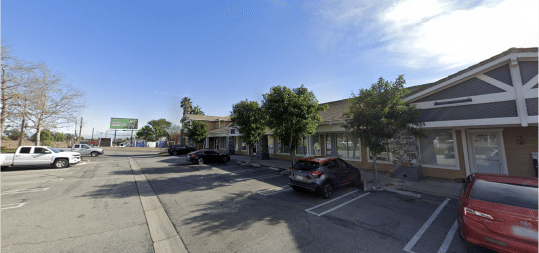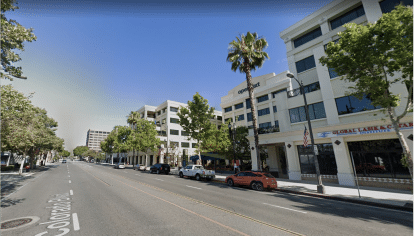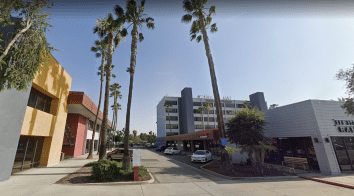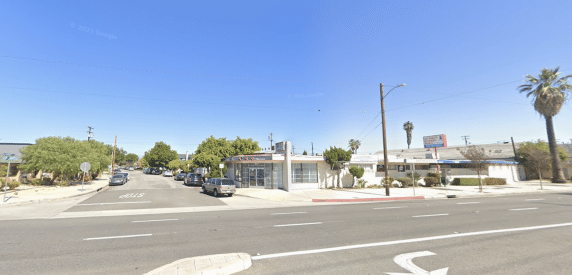
Posting bail is a crucial part of any criminal case, especially when you want to walk out of jail. Bail is the amount you pay to the court in exchange for a release before your trial. Bail is an assurance that you will attend court proceedings. If you cannot post bail, you remain behind bars while the case continues.
Although bail amounts could be high in California due your case’s circumstances, staying in jail could have far worse consequences on your life. When you secure your release through bail, you can return to work and earn money to cover the expenses of your criminal defense, which is not guaranteed if you stay in jail.
If you or your loved one is stuck in jail due to lack of money to post cash bail, you can enlist the services of a bail bond company. At Cali Bail Bonds, we understand the urgency of securing a release from jail. Our Orange County Bail Bonds agents will post your bail and offer expert guidance for you or your loved one during the challenging bail process.
Bail is a monetary commitment that a defendant makes with the court to secure a release while awaiting trial. When someone faces an arrest in California, the first question on their minds is how to post bail and secure a release as soon as possible. After your arrest and booking in jail, you are arraigned, where you can seek a bail hearing.
A bail hearing is the legal proceeding where the judge decides whether to release you on bail or have you remain in custody. Most criminal defendants in California are entitled to bail. Although you may post bail before appearing before a judge, disputes about the appropriate bail amount and the applicable conditions will necessitate the bail hearing.
The bail amount is designed to discourage the defendant from fleeing. Bail is not a punishment or a penalty for your criminal charges. Therefore, you can recover the money when the defendant appears for the hearing, and the case ends. A bail hearing is an opportunity for you to ask the judge to reduce your bail or eliminate it.
Some defendants are released from jail without the need of posting bail. An own recognizance release allows defendants to fight their charges out of custody without a monetary commitment. Unfortunately, an OR release is not available for all defendants. Your loved one can mostly qualify for release without bail if they are charged with a minor crime and first-time offenders. During an OR release, the defendant will be required to sign a promise to appear for the court proceedings. It is essential to understand that the court may attach some conditions to your release even when you do not post bail.
When the court decides to release a defendant on recognizance, the judge considers the type of crime that the defendant is accused of committing, their criminal history and their financial capability to cover the bail money. If you are charged with a crime where a victim suffered significant injuries, it may be difficult for you to receive an OR release. If the judge releases you on OR and you violate the conditions, a bench warrant may be issued against you.
In some ways, bail could be considered as a security, and as long as you appear for trial, you will recover the money. Bail is not the same for all defendants, and the amount varies based on several factors of the defendant's case. However, the judge will always rely on the bail scheduled at the first line of authority when setting your bail.
A bail schedule is a document created by the superior court in each county in California. The schedule sets out the required bail amounts for every felony offense charged under:
The bail schedules provide the amount a defendant facing certain criminal charges could pay without facing the judge. The amount indicated on the bail schedule is proportionate to the potential prison time you could face after a conviction for a specific offense. If your bail amount is attached to the arrest warrant, you will not need to go before the court for a bail hearing. During the first appearance in court, the judge may increase or reduce the amount indicated on the bail schedule.
The calculation of the bail schedule begins with the amount prescribed for your crime. If you face an arrest for multiple charges, the judge will start your bail with the highest amount among your offenses. If the crimes you are charged with are committed on different occasions, the judge might add the bail amounts. After ascertaining the amount indicated in the schedules, the judge will consider the long list of enhancements to increase the amounts. Some of the factors that would prompt an increase in your bail amount include:
The judge will consider your criminal history when adjusting your bail from the amount indicated on the bail schedules. In addition to allowing a defendant to be free while the trial continues, the court hopes to ensure the safety of other people. If you are in jail for a violent felony or a crime of domestic violence, this could be a basis to increase your bail. As a condition of bail, the court may issue a restraining order to restrict contact between you and the victims of your crimes. A violation of the protective order would result in bail forfeiture and your return to jail.
Flight risk is a term used to describe a defendant's likelihood of fleeing after posting bail to avoid criminal prosecution. During your bail hearing, you have the burden to prove to the court that you are not a flight risk. One of the ways that you can show that you have a flight risk is by having strong community ties. If you have a family or a stable job, you are unlikely to leave all that behind to flee justice. If the judge feels that you are likely to skip bail, they could increase your bail to a challenging amount to leave behind.
The seriousness of the crimes you are charged with plays a significant role when setting your bail. Individuals facing serious charges are more likely to flee while attempting to escape the harsh consequences that accompany a conviction for their crimes. If you face charges for a crime punishable by life imprisonment or capital punishment, the judge could deny your bail.
Posting bail comes with conditions that appear from trial when called upon to do so. Other conditions that the judge could set for a defendant may include travel restrictions, a stay-away order and avoiding criminal activity while out on bail. If you have a history of skipping bail or violating other court orders, the judge may increase your bail. This increases the amount you are likely to lose if bail forfeiture if you violate the order.
There are several types of bail through which you can secure your loved ones released from jail, including:
If you have the financial capability to do so, posting cash bail is the fastest way to secure the release of your loved one. If you opt for cash bail, the court requires you to pay the full bail amount before the defendant is released. If you post cash bail, you can recover the money after the case ends, and the outcome of the criminal case will not affect the bail amount.
Although posting cash bail is fast, many defendants lack the finances to post the high bail amounts in California courts. Also, posting a cash bail for a high amount could create suspicion regarding the course of your money. If the court suspects that the money used in posting a cash bail was obtained feloniously, they will need to hold the bail process to carry out financial investigations. This can delay the defendant's release.
Property bonds require you to pledge property to tie court for the defendant. The court will put a lien on the property that will not be lifted until the case ends. In California, most judges require that the value of property used for bail be at least twice the bail amount. Often the court may take longer to approve your property bond. A professional company must appraise the property to determine its value and ownership.
A bail bond is an agreement between a defendant and the bail bonds company. The bail bonds company posts a defendant's bail and assures the court that the defendant will not skip bail. The bail bonds process begins when you learn of your loved ones arrest and contact the bail bonds agency. The company will send an Orange County Bail Bonds agent who acts as the intermediary between the defendants, the court and the company.
Before contacting the bail bond agent, you must be sure to have the following information regarding the defendant:
Before offering bail bonds services, your Orange County Bail Bonds agent will investigate the defendant's eligibility for the bail bonds. This will be done by determining their flight risk and your ability to pay for the bail bonds services. In California, the cost of bail bonds is often 10% of the total bail amount. In addition to paying the 10% premium, the bail bond company may require you to provide collateral for the bail bonds.
Bail bond collateral could be a vehicle, real estate property or anything of value. When the bail bonds agent posts bail for a defendant, they will not only shoulder the financial burden associated with the bail but must ensure that the defendant appears in court and does not violate the conditions of bail. If your loved one does not appear for their court proceedings, the court may forfeit the bail causing the bail bond company to lose their money. In return, the bail bond agency will seize the collateral and sell it to recover their money.
When you seek bail bonds for a friend or loved one, you will be acting as a cosigner for their bail bond. Being a cosigner means you sign a contract to be liable for the defendant. If the defendant fails to show up for a trial, you will shoulder the financial burden of the bail forfeiture. Your Orange County Bail Bonds agent could charge you a recovery fee if they have to find the defendant and return them to jail.
Before co-signing a bail bond, you must meet the qualifications, including having a good credit score, being responsible, and having a good job history. You are not obligated to cosign a bail bond for anyone. Therefore, you can withdraw from the contract if you feel that the defendant may flee.
Some of the benefits you could accrue from using an Orange County Bails Bonds agent include:
An immigration bond works similarly to the bail bond and is used when the US immigration and Customs Enforcement detain a defendant. When you post an immigration bond for your loved one, they will be released from the ICE as they wait for an immigration hearing. There are several types of immigration bond including:
If you face an arrest in Orange County, CA, you could be held in any of these jails:
Orange County Central Men's Jail
550 N Flower St
Santa Ana, CA 92703
714-647-4666
Theo Lacy Facility
501 The City Dr S
Orange, CA 92868
714-935-6940
Women's Central Jail
44 Civic Center Plaza
Santa Ana, CA 92703
714-647-4666
Courts serving Orange County, CA include:
Lamoreaux Justice Center
341 The City Dr S
Orange, CA 92868
657-622-6878
Orange County Superior Court Civil Complex Center
751 W Santa Ana Blvd
Santa Ana, CA 92701
657-622-6878
One of the most common issues you could face when you or your loved one face arrest is to post bail and secure a release from custody. When the judge sets bail during bail hearing, a defendant can either post bail and walk out of jail or remain in jail awaiting trial. Some defendants stay in jail until trial because they cannot raise the cash bail.
Fortunately for you, you can post bail for your loved one through other ways, such as the use of a bail bond. After learning of the arrest, you can contact a bail bond company to help with the bail bond process and securing a release. Working with a bail bond company is an affordable way to navigate the bail process since you will only shoulder financial responsibility for 10% of the total bail.
If you seek to post bail for your loved one through bail bonds you want to seek the help of a bail bonds agent. At Cali Bail Bonds, we offer the much-needed financial assistance in posting bail for your loved one. Call our Orange County Bail Bonds agent today at 562-376-5476 to discuss your situation.
"*" indicates required fields






